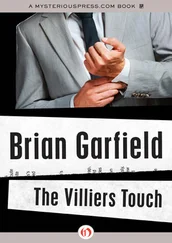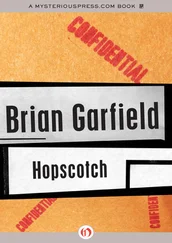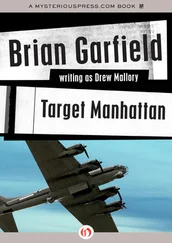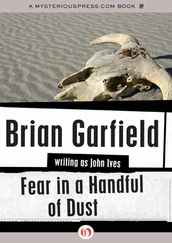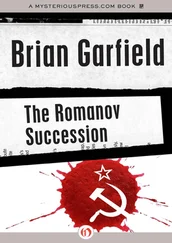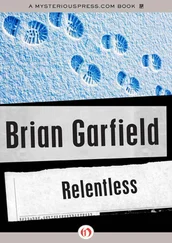Brian Garfield - Kolchak's gold
Здесь есть возможность читать онлайн «Brian Garfield - Kolchak's gold» весь текст электронной книги совершенно бесплатно (целиком полную версию без сокращений). В некоторых случаях можно слушать аудио, скачать через торрент в формате fb2 и присутствует краткое содержание. Жанр: Политический детектив, на английском языке. Описание произведения, (предисловие) а так же отзывы посетителей доступны на портале библиотеки ЛибКат.
- Название:Kolchak's gold
- Автор:
- Жанр:
- Год:неизвестен
- ISBN:нет данных
- Рейтинг книги:3 / 5. Голосов: 1
-
Избранное:Добавить в избранное
- Отзывы:
-
Ваша оценка:
- 60
- 1
- 2
- 3
- 4
- 5
Kolchak's gold: краткое содержание, описание и аннотация
Предлагаем к чтению аннотацию, описание, краткое содержание или предисловие (зависит от того, что написал сам автор книги «Kolchak's gold»). Если вы не нашли необходимую информацию о книге — напишите в комментариях, мы постараемся отыскать её.
Kolchak's gold — читать онлайн бесплатно полную книгу (весь текст) целиком
Ниже представлен текст книги, разбитый по страницам. Система сохранения места последней прочитанной страницы, позволяет с удобством читать онлайн бесплатно книгу «Kolchak's gold», без необходимости каждый раз заново искать на чём Вы остановились. Поставьте закладку, и сможете в любой момент перейти на страницу, на которой закончили чтение.
Интервал:
Закладка:
Even among the still-organized units there was no military supply service left. The soldiers requisitioned food at gunpoint. On the trains the passengers burned anything flammable: candles were worth the price of a life-for their heat, not their light.
Every few days the booran -the high wind that came with the Siberian blizzard-whipped across the steppes and blew dry fine powder-snow which could choke a man and blind him. The deep winter slaughtered them by thousands: by hundreds of thousands. They marched obliviously through the snow, sliding on the slippery flesh of corpses underfoot. The trakt was a macabre putrefaction of rubble and derelict human remains.
By mid-December Kolchak’s seven trains had passed down most of the length of the column and he had left some three hundred evacuation trains behind him. Nearly all of them froze, broke down, or were derailed by partisans. Each had to be pried off the tracks so that following trains could proceed.
The dead capsized trains became shelters for refugees who lived in them and burnt all their wood and then moved on again, clinging to passing sledges and carts or walking.
At rare intervals a passing train would toss food to the refugees. But hundreds were trampled to death in the rush to claim it.
The news reached Kolchak that Red cavalry had interdicted the track only a few hundred miles behind him. Trains back there were cut off and the Communists were methodically butchering the passengers, burning the hospital trains with the sick and injured still inside them. Thousands of passengers were clubbed to death because the Reds wanted to save ammunition.
Toward the end of December the Red Army behind them was capturing a dozen trains a day and those who could escape the trains took to the mountains south of the railway to avoid capture. By now less than one tenth of the railway’s rolling stock was usable. Kolchak forced his staff officers out into the gales to gather snow for his engine boilers because the pumps of railway water towers had congealed in the cold. Morphine and all other medical supplies ran out. Axes would not cut frozen trees; farmhouses and barns were chopped down to fuel the Admiral’s locomotives. Each depot was stripped and razed for food and fuel but there was not enough; each of the old convict stations became a graveyard and the unburied dead lay along the tracks in mountains. On December 14 the Reds entered Novonikolayevsk and found in the buildings and streets of the city the corpses of thirty-five thousand men, women and children.* At Taiga they counted more then fifty thousand dead.
Because of the war-still being fought in the Ukraine and elsewhere throughout Russia-the harvest had been minimal (despite the informal harvest-season truce) and in this horrible winter of 1919–1920 millions-literally millions-died of disease, famine and cold. They were not battlefield casualties but nevertheless it was the war that killed them.
In the meantime the retreat stumbled on. Beyond the frozen Ob and Yenisey rivers the terrain began to crumple and heave. It was the boundary of the central Siberian uplands; the Sayan Mountains formed a high barrier along the Mongolian borders and long ridges shouldered out far into the steppes. The Kuznets, Siberia’s rich iron and coal region, was timbered and jagged: Mount Piramida, eleven thousand feet high, loomed just south of the Trans-Siberian tracks.
Somewhere in this district, Aleksandr Kolchak played out his penultimate gamble.
“Twice around Christmas our locomotive had run out of fuel and the boilers had frozen and burst. The third time it happened we were in the Kuznets, I think it must have been two or three days after Christmas. We uncoupled the locomotive and concocted some sort of cable truss with which we heaved and jacked and tipped the locomotive off the rails, and then the Admiral’s train reversed into us and we were coupled onto the caboose of his train. But we were too heavy and his locomotives-he had two of them in tandem on his train-only slipped their wheels on the tracks. You see, we were on the upgrade there, it was miles and miles of two or three percent grade. Even putting sand on the rails didn’t help. Our train was simply too heavy. The gold itself weighed five hundred tons-one million pounds that is-and there was all that armor plate, we had twenty-eight armored goods wagons filled with treasure. It simply wouldn’t budge.
“Our detachment-my brother’s and mine-was still manning the gold train, of course. We were not alone there, the Admiral had assigned several of his officers and their staffs to us. The gold was the most important thing in his existence then and of course he wasn’t going to trust it to two dozen worn-out soldiers like ourselves. We were knee-deep in colonels and brigadiers and it was a curious arrangement because officially my brother and I-subalterns in rank, you know-were in charge there but we had more high-ranking officers than enlisted men on our train. Naturally none of them took orders from us. But we were all in the same hopeless situation and there was very little friction-the officers were as terrified as our enlisted troops, no one had the strength to be abrasive.
“All the officers on the Admiral’s staff kept vying for assignment to our train. There were a number of reasons. We were always the first to receive food and firewood, for instance. The Admiral meant to insure that we stayed in good fighting health in case we had to defend the train against an attack. Then too there was the fact that our train wasn’t overcrowded. The gold weighed so much that it hadn’t been possible to jam people into every available space. There was elbow room-each of the goods wagons had only part of its space filled with treasure, there was a good deal of empty space because of the weight. And also everyone knew that if any train got through it would be ours, so that everyone wanted to be part of it. There were squadrons of Cossacks aboard the trains in front of us and behind us and their sole assignment was to prevent our own people from climbing on board this train. I have no idea how many were murdered by those Cossacks; it must have been hundreds at least.
“When we were stalled that final time in the Kuznets the Admiral called a conference-the ranking people on his staff. My brother and I were not privy to it of course, but afterward it was easy to see what they had decided. I don’t know whose idea it was-I doubt it was the Admiral’s, he was too jealous of the treasure, he wouldn’t have volunteered to part with it. But someone-or some group-must have convinced him that it simply wasn’t possible to go on carrying it with us. We were still a thousand kilometers short of Irkutsk.
“At this time we had progressed ahead of the vanguard of the refugee column on the trakt. I suppose it must have been two or three days behind us. We did not know then, of course, how many of them had perished.* But in spite of our special treatment we had lost several lives even among our own small privileged company and we couldn’t believe that those poor wretched beings had much chance of survival in the open.
“I don’t excuse our actions; it was a time when you chose between your charitable impulses and your need for personal survival. You can debate the philosophical consequences of such a decision endlessly in hindsight, and God has witnessed the guilt with which all of us who survived must have struggled without cease. But you didn’t think about such things then. You didn’t think at all. You existed from moment to moment, you armored yourself with indifference to everyone’s suffering but your own. If there was privilege or advantage to be had, you siezed it or you perished.
“In a way the ones who died had an advantage-at least they were spared the unavoidable torture of guilt that goes with the knowledge that through no virtue of your own you’ve lived through hell simply because you happen not to have died in it, and that your survival has been achieved at a cost of hundreds or thousands of the lives of your fellow men.
Читать дальшеИнтервал:
Закладка:
Похожие книги на «Kolchak's gold»
Представляем Вашему вниманию похожие книги на «Kolchak's gold» списком для выбора. Мы отобрали схожую по названию и смыслу литературу в надежде предоставить читателям больше вариантов отыскать новые, интересные, ещё непрочитанные произведения.
Обсуждение, отзывы о книге «Kolchak's gold» и просто собственные мнения читателей. Оставьте ваши комментарии, напишите, что Вы думаете о произведении, его смысле или главных героях. Укажите что конкретно понравилось, а что нет, и почему Вы так считаете.

